
-
 86-21-63895588
86-21-63895588
-
 No.1, Lane 600, Nanchezhan Road, Huangpu District, Shanghai 200011
No.1, Lane 600, Nanchezhan Road, Huangpu District, Shanghai 200011
Release time:2023-01-13
The Chinese economy has been renowned for its steadiness. And this year how shall that steadiness be implemented? As determined in the Central Economic Work Conference held at the end of 2022, the economic work in 2023 shall carry on the general keynote of “putting priority on steadiness and making progress while ensuring stability”. What’s the difference between the “steadiness” in 2023 and in 2022? How to hold the bottom line and avoid systematic risks during the process of keeping such steadiness? And is there a better way to motivate steady development so that the long-lost hustle and bustle, market prosperity and growth combined with normal recoverable economic conditions? On January 12th, 2023, Professor Jun Qian, Executive Dean of FISF, Professor in Finance, and Member of the 14th Shanghai Municipal Committee of the CPPCC, was invited to Economic 30 Minutes on CCTV, focusing on the stability of the real estate market and economic revival.
Only with a steady economy can a country unite its people and control the overall situation. Now that the central government has already declared the policy of “steady growth”, a number of areas are making corresponding responses, and “keeping the economic market steady” has become a high-frequency keyword in economic work conferences recently held in different provinces. To put priority on steadiness and make progress while ensuring stability, effective management must be conducted on critical risks and the bottom line must be held to avoid systematic risks. It is emphasized in the Central Economic Work Conference that efforts should be made to effectively prevent and defuse substantial economic and financial risks and to ensure the steady growth of the real estate market. It is of primary significance to defuse risks in the real estate market for the purpose of effectively preventing substantial economic and financial risks.
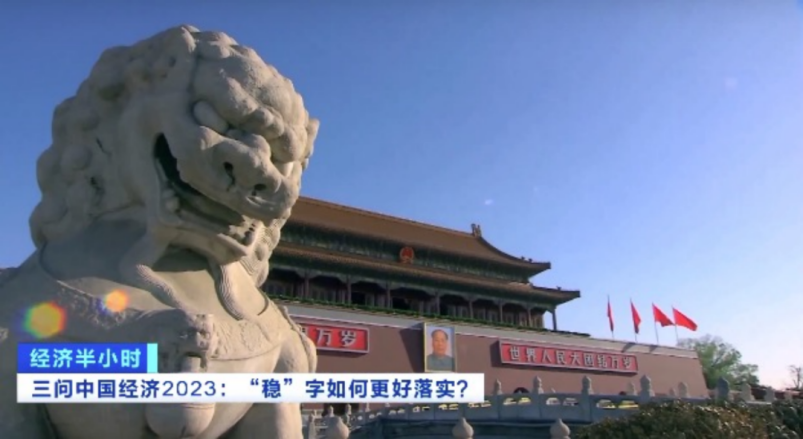
In 2022, the real estate industry went through unprecedented turbulence. As the data of the National Bureau of Statistics shows, during the period from January to November 2022, the saleable area of commercial housing in the whole country mounted to 1.2125 billion square meters, making a year-on-year decrease of 23.3%. Among the total area, the saleable area of residence decreased by 26.2%. Enterprises in the real estate industry were faced with huge challenges in multiple aspects of capital turnover, product delivery and destocking. Therefore, “keeping steady” is the key to the revival of the real estate industry. In 2022, the concept of “house delivery guarantee” was first added to the conference document of the Political Bureau of the Central Committee of the CPC; and the Central Economic Work Conference also proposed to fully implement the work of “house delivery guarantee, people’s livelihood guarantee and steadiness guarantee”.
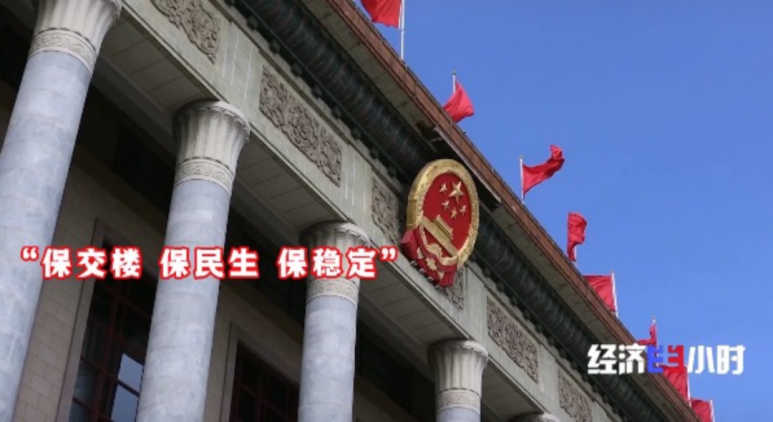
In August 2022, the Ministry of Housing and Urban-Rural Development, the Ministry of Finance and the Central Bank explicitly expressed that the delivery of residential project construction that is already sold but hard to deliver shall be supported in the way of special loans from policy banks. In September 2022, the national fund of the special loans of 200 billion yuan was initiated, marking the entry into the substantial implementation stage of the “housing delivery guarantee” funds. On November 11, 2022, the Central Bank and China Banking and Insurance Regulatory Commission (CBIRC) released the “16 Financial Measures”. Since then, relevant departments have shot “three arrows” toward the real estate industry within just 20 days, offering support in multiple aspects of bank credit, bond financing and equity financing. Such strong policy support has greatly uplifted the confidence of various parties.
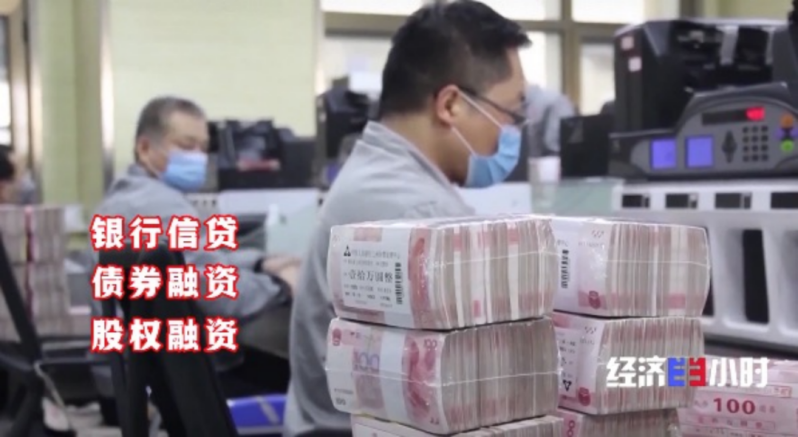
Local governments have also contributed their own forces in the battle of “housing delivery guarantee.” In August 2022, Zhengzhou took the lead to announce the first real estate relief fund. In 2022, nearly 40 provinces and cities in China have issued “housing delivery guarantee” measures and hundreds of billions of housing delivery guarantee funds have been distributed to various projects.
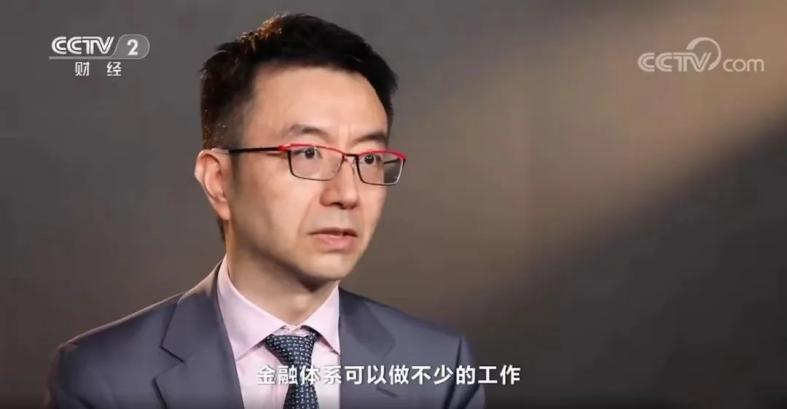
Professor Qian held that the reason why the “housing delivery guarantee” work matters so much is that such needs are not castles in the air but do exist. Not only does it involve the steadiness of people’s livelihood, but it is also of great significance to stabilizing the real estate market and renovating economic confidence. And finance can play a key part in this process.
Reporter: How large should the fund scale be?
Professor Qian: Currently the fund scale in our country is about 200 billion yuan. I personally think it can be larger, say, 1000 billion yuan. The appearance of this scheme is quite beneficial to regaining market confidence.
Reporter: 2022 was a year of great policy changes for the real estate industry with “three arrows shot at the same time” in financing policies. The third “arrow”, in particular, opened the “valve” of equity financing that had been closed for over a decade. Do you think real estate enterprises can get out of the woods by way of the supply side?
Professor Qian: Actually starting from 2021 and during the entire 2022, we have accumulated much experience in dealing with debt risks and asset restructuring of large-scale real estate enterprises. I have faith that the debt issues of relatively large- and middle-sized real estate enterprises can be properly solved within the first half of this year, which is of great positive significance to the revival of the entire real estate market in the near future this year.

With the issuance of a series of both central and local policies and corresponding funds in place successively, the struggling real estate industry has seen new hopes. The answer to how the real estate industry could march forward lies in the Report of the 20th CPC National Congress. As pointed out in the report, it is urgent to speed up the construction of the housing system of multi-subject supply, multi-channel guarantee and simultaneous development of both house leasing and purchasing. On the very day of November 8, 2022, the first house lease fund was officially founded in China, offering long-term house lease services to individual leasees by revitalizing the stock houses in the market. Among these, 40 large- and middle-sized cities with net population inflow have already built and collected more than 2.7 million houses (or rooms), completing 42% of the objective of the “14th Five-year Plan”. This largely relieves residents’ consumption demands. And the good news keeps coming! On January 5, 2023, Shenzhen also joined the team and promoted the “transfer of second-hand houses still under mortgages”.
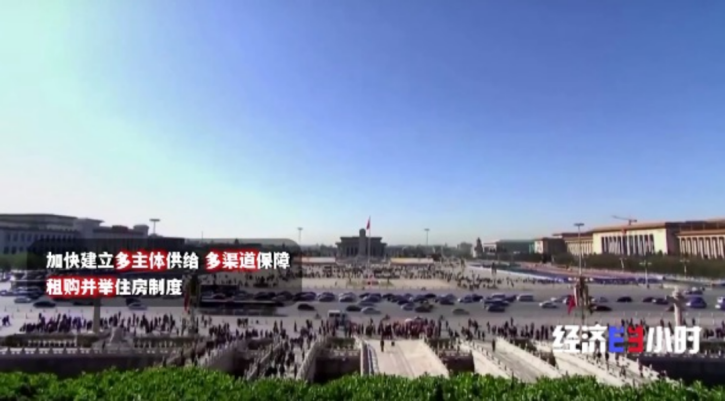
According to incomplete statistics, so far there have been a total of 32 places nationwide that have successively announced to promote the “transfer of second-hand houses still under mortgages”. It is explicitly put forward in the Outline of the Strategic Plan for Expanding Domestic Demand (2022-2035) printed and distributed by the Central Committee of the Communist Party of China and the State Council that it is necessary to promote the healthy development of residential consumption, echoing the concept of “focusing on domestic demands and putting priority to the revival and expansion of consumption, increase of the income of urban and rural residents from multiple channels and providing support for consumption in residence improvement, new energy vehicles and pension services” proposed in the Central Economic Work Conference. Meanwhile, after the idea of “exploring new development models” first initiated in 2021, the Central Economic Work Conference once again came up with the saying of “pushing the smooth transition the real estate industry toward new development models” in 2022.
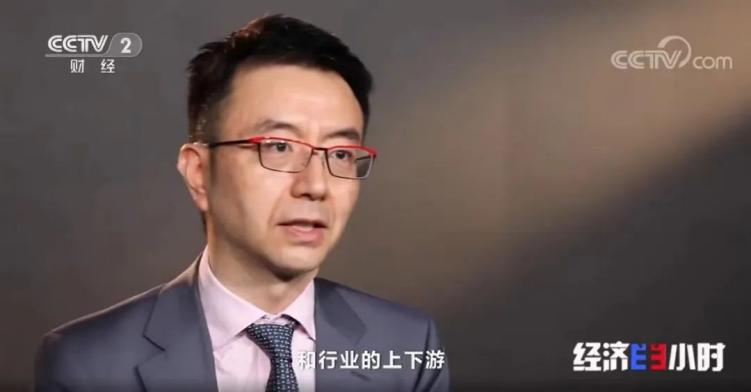
REITs, Real Estate Investment Trust, has existed and developed for over 60 years in the global capital market. But in China, its underlying assets mainly target real estate in the field of infrastructure. On August 31, 2022, the first 3 house lease guarantee REITs were listed and traded respectively in Beijing, Shanghai and Shenzhen. On December 8th, Vice Chairman of CSRC Li Chao advised to speed up the pace in building the house lease guarantee sector in the REITs market and seek ways to expand the pilot scope to fields of market-oriented long-term lease houses and commercial properties.
[Observation 30 Minutes] Seeking advancement by keeping steady and enhancing steadiness with advancement
Steadiness is the cornerstone of development and going steadily is a precondition to going far. The more risks and challenges or uncertainties there exist, the more “steadiness” is needed. It is relevant not only to economic aggregates but also to the development of confidence, market expectations and the sense of people’s livelihood gains. However, such steadiness cannot just be waited for but earned from solid work by seeking new models of healthy development from risks and finding new ways to break through adversities. With “advancement” in solving the deep-seated structural contradictions, more solid “steadiness” can be achieved; with “advancement” supported by strengthened new dynamics, more energetic “steadiness” can be achieved; and with “advancement” in improving people’s livelihood, warmer “steadiness” can be achieved. It is believed that the Chinese economy will march forward more steadily and tenaciously in 2023.
Article source: the official WeChat account of “CCTV”